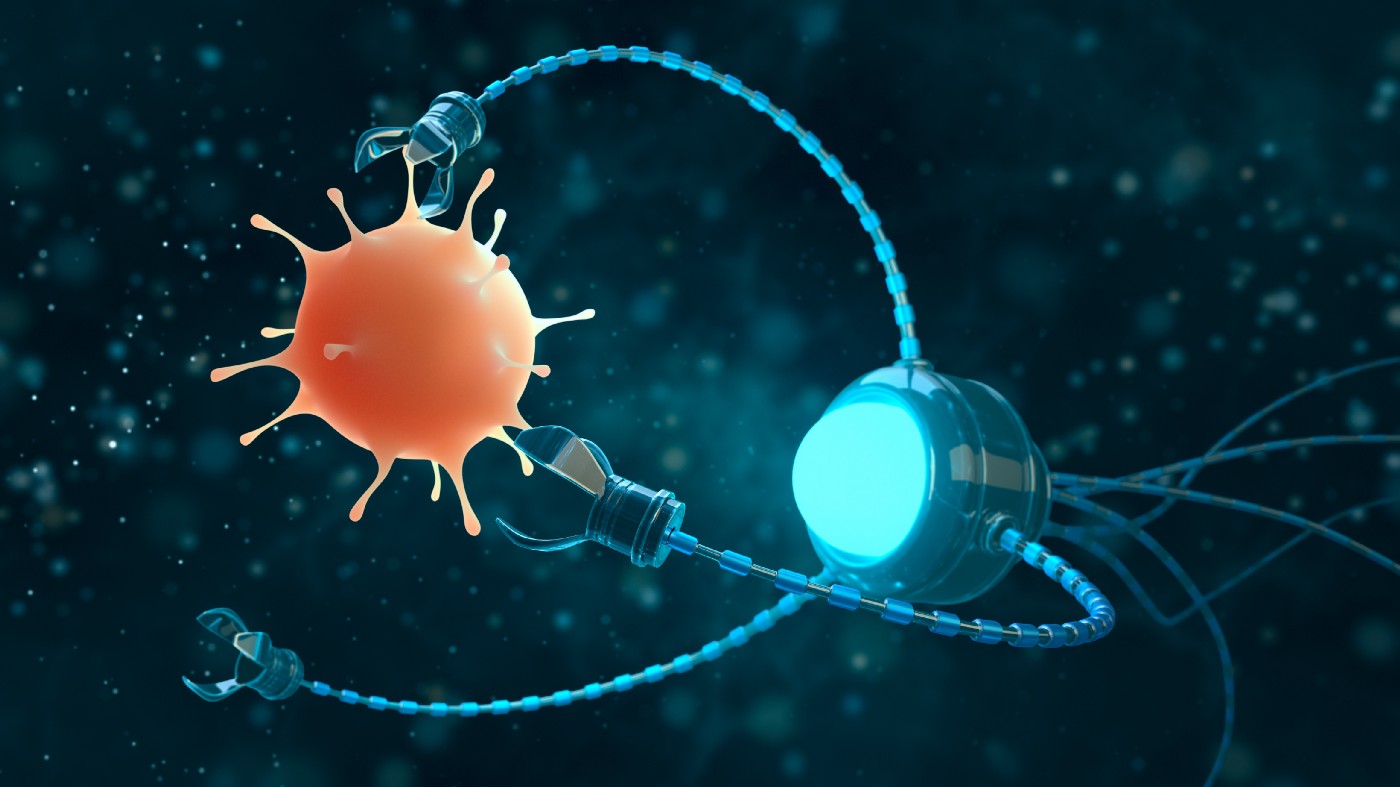Nanotechnology is a rapidly evolving field that has the potential to revolutionize the way we live, work and communicate. As the science of engineering and manipulating matter at the nanoscale, nanotechnology is already being used in a wide range of applications, from electronics and computing to medicine and energy.
In this article, we will explore the current state of nanotechnology, the potential impact it could have on our daily lives, and the challenges that lie ahead.
- Introduction to Nanotechnology
Nanotechnology is the science of studying and manipulating matter at the nanoscale, which is typically defined as between 1 and 100 nanometers in size. At this scale, the properties of materials can be very different from those at the macro scale, which allows for the creation of new materials with unique and desirable properties.
The field of nanotechnology encompasses a wide range of disciplines, including physics, chemistry, materials science, and engineering. Researchers in these fields work together to design and create new materials and devices that can be used in a variety of applications.
- Current Applications of Nanotechnology
Nanotechnology is already being used in a wide range of applications. In electronics and computing, for example, nanoscale transistors and memory devices are used to create faster and more efficient computer chips. In medicine, nanoparticles are being used to deliver drugs directly to cancer cells, reducing the side effects of chemotherapy. In energy, nanomaterials are being used to create more efficient solar panels and batteries.
Nanotechnology is also being used in the development of new materials with unique properties. For example, carbon nanotubes are incredibly strong and lightweight, making them ideal for use in applications such as aerospace and automotive engineering.
- Potential Impact of Nanotechnology on Daily Life
As nanotechnology continues to evolve, it has the potential to have a significant impact on our daily lives. In medicine, for example, the use of nanotechnology could lead to more targeted and effective treatments for a range of diseases. In energy, the development of more efficient solar panels and batteries could lead to a more sustainable and environmentally friendly energy system.
Nanotechnology could also have a significant impact on the way we communicate and interact with the world around us. For example, the development of nanosensors could allow us to detect and monitor a wide range of environmental factors, such as air pollution and water quality. This could lead to more effective and targeted efforts to address environmental issues.
- Challenges and Risks of Nanotechnology
Despite the potential benefits of nanotechnology, there are also significant challenges and risks that need to be addressed. One of the biggest challenges is the development of safe and effective nanomaterials. Because the properties of materials at the nanoscale can be very different from those at the macro scale, it is important to ensure that these materials do not pose a risk to human health or the environment.
Another challenge is the potential for misuse or unintended consequences. For example, the development of nanomaterials with unique properties could lead to new forms of warfare or terrorism. It is important to develop appropriate regulations and safeguards to minimize these risks.
- FAQs
Q: What are some examples of nanotechnology in everyday life? A: Some examples of nanotechnology in everyday life include the use of nanomaterials in sunscreen, clothing, and sporting equipment, as well as the use of nanosensors in air quality monitors and water purification systems.
Q: What are some potential risks of nanotechnology? A: Some potential risks of nanotechnology include the development of unsafe or toxic nanomaterials, the potential for misuse or unintended consequences, and the ethical implications of manipulating matter at the nanoscale.
Q: How is nanotechnology being used in medicine?
A: Nanotechnology is being used in medicine in a variety of ways. One example is the use of nanoparticles to deliver drugs directly to cancer cells. This approach can improve the effectiveness of chemotherapy while reducing side effects.
Nanotechnology is also being used to create new diagnostic tools. For example, researchers are developing nanosensors that can detect specific biomarkers in the body, which could lead to earlier and more accurate diagnoses of diseases.
In addition, nanotechnology is being used to create new materials for medical devices. For example, researchers are developing nanomaterials that can be used to create artificial joints and other implants that are more durable and effective than traditional materials.
Q: What are some of the ethical considerations around nanotechnology? A: One of the main ethical considerations around nanotechnology is the potential for unintended consequences. Because the properties of materials at the nanoscale can be very different from those at the macro scale, it is important to consider the long-term effects of using these materials.
Another ethical consideration is the potential for nanotechnology to exacerbate existing social and economic inequalities. For example, the development of new materials and devices could be expensive and inaccessible to certain groups, leading to greater disparities in healthcare and other areas.
Q: How is nanotechnology being used in energy? A: Nanotechnology is being used in energy in a variety of ways. One example is the use of nanomaterials in solar panels, which can improve their efficiency and reduce their cost. Nanotechnology is also being used to create more efficient batteries, which could help to store and distribute renewable energy more effectively.
- Conclusion
Nanotechnology is a rapidly evolving field that has the potential to have a significant impact on our daily lives. From electronics and computing to medicine and energy, nanotechnology is already being used in a wide range of applications, and the possibilities for future innovations are vast.
However, there are also significant challenges and risks associated with nanotechnology, including the development of safe and effective nanomaterials, the potential for misuse or unintended consequences, and the ethical implications of manipulating matter at the nanoscale.
As we continue to explore the possibilities of nanotechnology, it is important to proceed with caution and to consider the potential long-term effects of these new technologies. By doing so, we can ensure that nanotechnology is used to improve our lives in a safe and responsible manner.
Tags: nanotechnology, daily tech, future tech, medicine, energy, electronics, computing, nanomaterials, innovation, ethical implications, technology, science, research
Hashtags: #nanotechnology #dailytech #futuretech #medicine #energy #electronics #computing #nanomaterials #innovation #technology #science #research #ethics
See Also
Source link











Leave a Reply